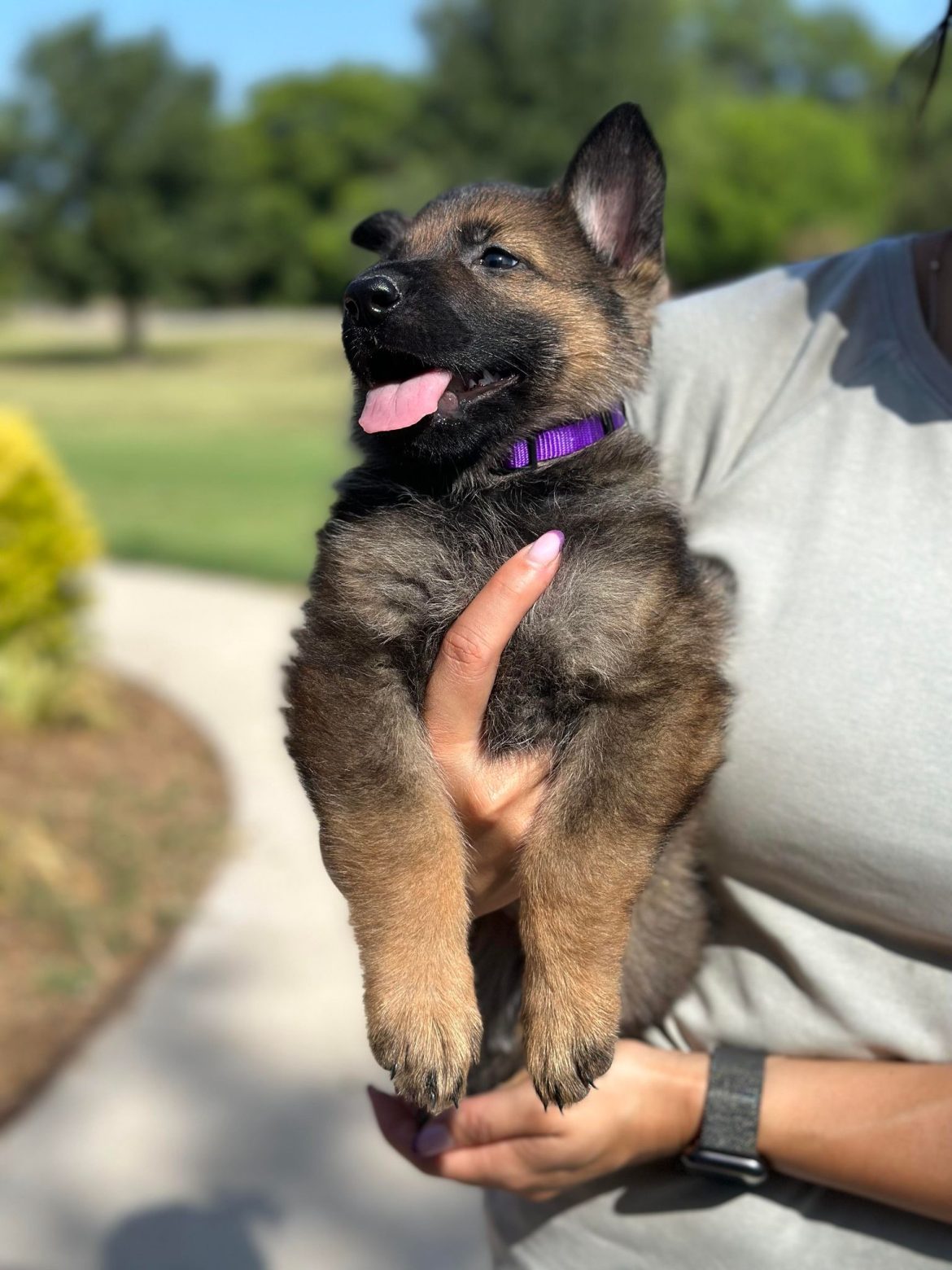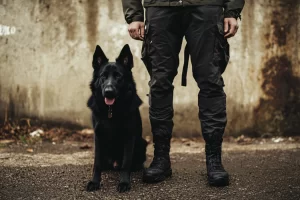Early Socialization of your German Shepherd Dog puppy
When you bring home a German Shepherd puppy, you are not just welcoming a new pet into your home; you are also taking on the responsibility of shaping the behavior and temperament of a future adult dog. Early socialization is crucial for German Shepherds, as it helps them become well-adjusted, confident, and friendly adults. Without proper socialization, your puppy might grow up to be fearful, aggressive, or overly shy, which can lead to a host of behavioral problems. Therefore, understanding the importance of early socialization is the first step in ensuring that your German Shepherd grows up to be a balanced and happy dog.
Introducing Your German Shepherd Dog Puppy to New Environments
Introducing your puppy to a variety of environments can help your puppy become adaptable and less anxious in different settings. Start by taking your puppy to different parts of your home and backyard, gradually moving on to more public places like parks, busy streets, and even pet-friendly stores. Each new environment offers unique sights, sounds, and smells, which are essential for your puppy’s development. Make sure these experiences are positive by offering treats and praise, so your puppy associates new environments with good things.
One of the key aspects of socialization is exposing your German Shepherd puppy to a variety of environments. This helps your puppy become adaptable and less anxious in different settings. Start by taking your puppy to different parts of your home and backyard, gradually moving on to more public places like parks, busy streets, and even pet-friendly stores. Each new environment offers unique sights, sounds, and smells, which are essential for your puppy’s development. Make sure these experiences are positive by offering treats and praise, so your puppy associates new environments with good things.
Over Time, Introduce Your German Shepherd Dog Puppy to New People
Human interaction is another critical element of socializing your German Shepherd puppy. We have written about this in other articles. Click here and here for articles specifically on this subject. Critical in this process is that you choose when and how your puppy interacts with new people. One of the big don’t is to have anyone and everyone just walk up to your puppy. As the owner, you set the boundaries on how and when people approach your puppy. Your puppy needs to meet people of all ages, sizes, and appearances. This includes men, women, children, people with hats, glasses, and different clothing styles. Each new person your puppy meets helps to build its confidence and reduces the likelihood of developing fear or aggression towards strangers. Encourage friends and family to interact with your puppy, always ensuring these interactions are gentle and positive. Over time, your puppy will learn that people are friendly and that meeting new humans is a normal part of life.
Socializing your German Shepherd Dog Puppy With Other Animals
Introducing your GSD puppy to other dogs and animals is equally important. This helps your puppy learn appropriate social behavior and prevents future aggression or fear towards other animals. Start with well-behaved, vaccinated dogs that you know are friendly. Observe your puppy’s body language and intervene if any play becomes too rough. Puppy classes or supervised playgroups can be excellent opportunities for socialization. Additionally, if you have other pets, ensure your puppy interacts with them under close supervision. These experiences teach your puppy how to communicate and coexist peacefully with other animals.
Getting Your German Shepherd Dog Puppy Ready For Trimming Nails and Grooming
Your German Shepherd puppy needs to be comfortable with being touched and handled, which is vital for grooming, vet visits, and everyday interactions. Regularly handle your puppy’s paws, ears, mouth, and tail, and get them used to being gently restrained. Make these sessions short and positive, offering treats and praise. This not only helps your puppy become accustomed to human touch but also establishes a trusting relationship between you and your pet. A well-handled puppy is more likely to remain calm and cooperative during grooming and medical examinations.
Exposing Your GSD Puppy to Different Sounds and Objects
Puppies can be easily startled by unfamiliar sounds and objects, so it’s important to expose your German Shepherd to a variety of auditory and visual stimuli. This includes household noises like vacuum cleaners, doorbells, and kitchen appliances, as well as outdoor sounds like traffic, sirens, and construction. Gradually introduce these sounds at a low volume, increasing it as your puppy becomes more comfortable. Similarly, expose your puppy to different objects such as umbrellas, bicycles, and strollers. By desensitizing your puppy to these stimuli, you help prevent fear and anxiety in adult life.
Positive Reinforcement Training for Your Alsatian Shepherd (Another Name for GSD)
Using positive reinforcement during socialization is crucial. German Shepherds are intelligent and eager to please, making them highly responsive to rewards-based training. Whenever your puppy successfully interacts with a new environment, person, animal, sound, or object, reward them with treats, praise, and affection. This reinforces the idea that new experiences are positive and rewarding. Avoid punishment or harsh corrections, as these can create fear and distrust. Instead, focus on building a strong bond with your puppy through consistent, positive interactions.
Consistency and Patience in Training Your German Shepherd Dog Puppy
Socializing a German Shepherd puppy requires consistency and patience. It’s not a process that can be rushed or skipped. Dedicate time each day to socialization activities, gradually increasing the level of difficulty as your puppy grows more confident. Be patient and understand that every puppy progresses at their own pace. Some puppies may be more outgoing, while others might be more reserved and need extra encouragement. Celebrate small victories and remain consistent in your efforts. Over time, your dedication will pay off as your German Shepherd becomes a well-adjusted, confident, and sociable adult dog.
Conclusion: Building a Strong Foundation
In conclusion, socializing your German Shepherd puppy is a multi-faceted process that involves exposure to various environments, people, animals, sounds, and objects. Each step plays a vital role in ensuring that your puppy grows up to be a well-rounded and confident dog. By understanding the importance of early socialization, introducing your puppy to new experiences, and using positive reinforcement, you lay a strong foundation for a happy and harmonious life together. Remember, the time and effort you invest in socializing your German Shepherd puppy will result in a loyal, loving, and well-behaved companion. For more articles on this subject, see our articles page here at Czech Working Line.




